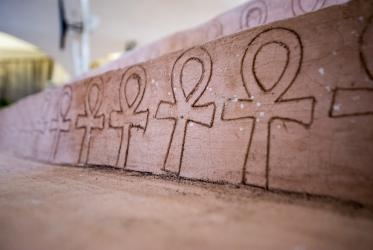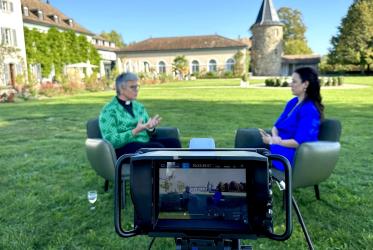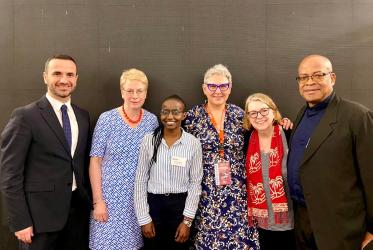A study group from the World Council of Churches Faith and Order Commission met at the Bossey Ecumenical Institute from 8-12 January to continue ongoing work on the reception of response to “The Church Toward a Common Vision”.
After the publication of the commission’s second convergence document, “The Church Toward a Common Vision,” (TCTCV) in 2013, the major task and challenge for the study group has been the progress of the multilateral ecumenical dialogue on the church. One focus of the study group is to harvest the fruits of TCTCV, the official responses coming from churches, ecumenical bodies, theologians, universities, and others. So far 74 responses have been received, coming from “traditional” churches or bodies.
During this most recent meeting, a major part of the response was analysed. Study group members continued identifying key themes and issues that emerged from the responses, particularly those that can divide and create disunity among churches.
“The Bible highlights the importance of unity and oneness”, said Dr Ani Ghazaryan Drissi, programme executive for the Faith and Order Commission. “We read in Psalm 133:1 that the unity with others is ‘good’ and ‘pleasant’. According to 1 Corinthians 12:27, unity is absolutely essential, because the church is the ‘body of Christ’, and each one of us is a part of it. The body cannot thus be in division with itself. Jesus Christ’s plan for his church is to have people and churches unified in the faith and then in the mission of the church”.
The next Faith and Order Commission’s meeting will take place in June 2019 in Nanjing, China and the commission will discuss contemporary challenges related to church unity highlighted in the responses to TCTCV.
WCC Commission on Faith and Order






